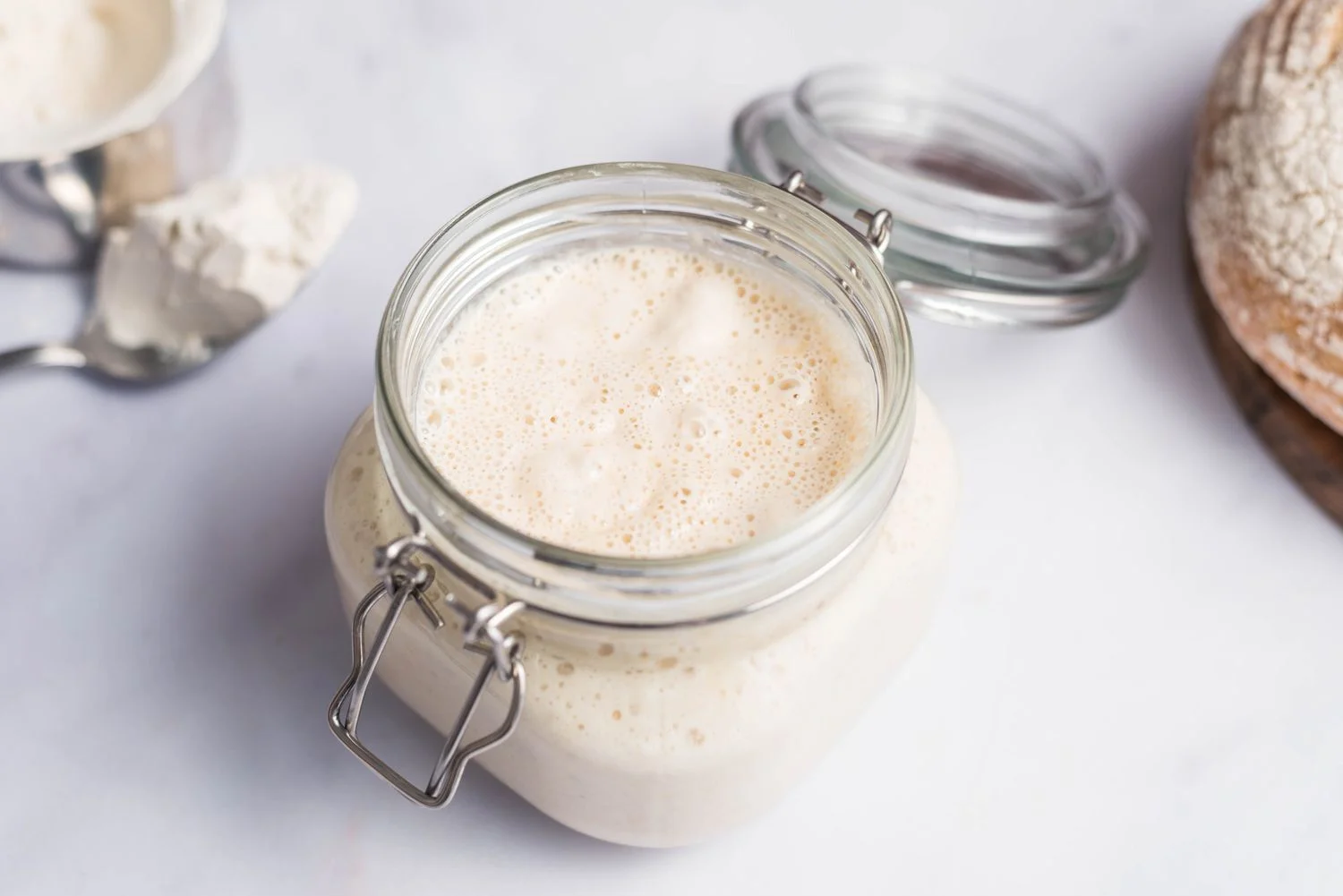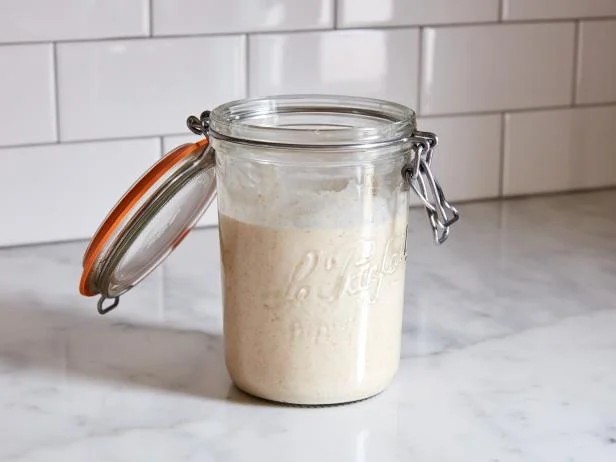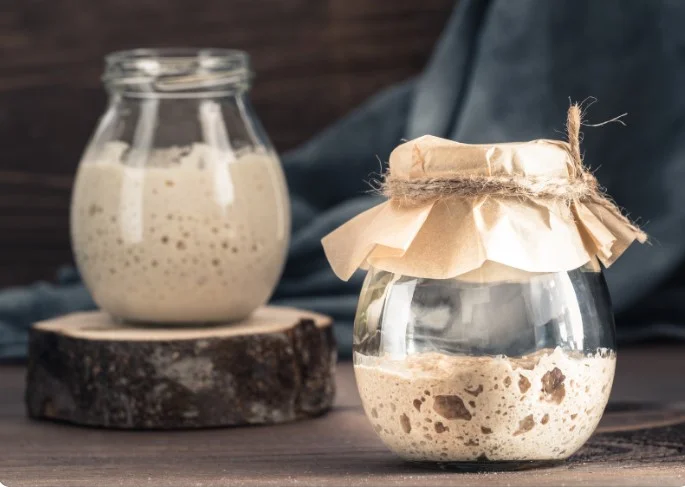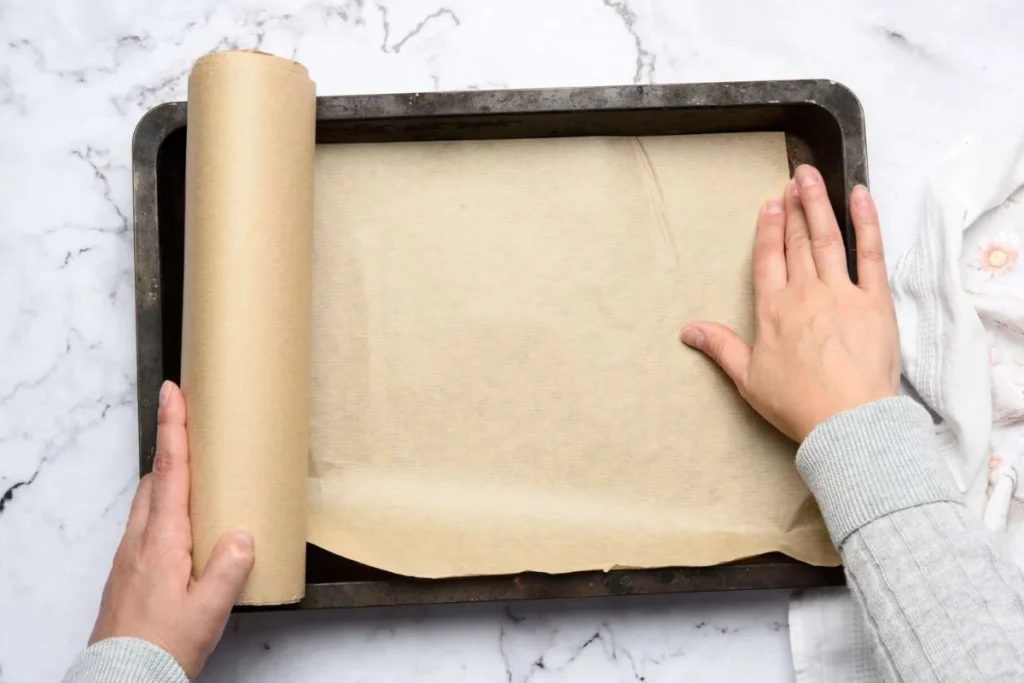
Sourdough Starter Smelling Like Alcohol: Is It Normal and How to Fix It?
If you’ve ever tried making sourdough bread, you know how crucial it is to have a good sourdough starter. But what happens when my starter starts to emit an alcohol-like Scent? Is it normal, or should I be worried? Well, let me tell you my experience.
I remember the first time I encountered this issue—I had dedicated time and effort to nurturing my own starter, and it was disheartening to encounter this unexpected aroma. However, I soon discovered that I wasn’t alone in facing this dilemma. Many home bakers have experienced the exact same thing, and it can be quite frustrating.
The good news is that a sourdough starter smelling like alcohol is actually a common occurrence, and it doesn’t necessarily mean there’s something wrong. In fact, it’s an indication that my starter is doing precisely what it’s supposed to do—fermenting.
You see, during the fermentation process, the natural yeasts and bacteria present in the starter consume the carbohydrates in the flour and convert them into alcohol and carbon dioxide. So, that boozy scent is actually a sign of an active and thriving starter.
Now, while it’s reassuring to know that this aroma is normal, I’m sure you’re wondering how to address the issue and return to baking delicious sourdough bread.
In the following Sections, I’ll explain what causes a sourdough starter to smell like alcohol and, more importantly, share some tips on how to fix it. With these solutions, we can ensure our starters remain vibrant and ready to produce those mouthwatering loaves of bread we adore.
Table of Contents
ToggleIs it Normal for a Sourdough Starter to Smell Like Alcohol?
Many experienced bakers will tell you that a sourdough starter smelling like alcohol is perfectly normal, especially during specific stages of the fermentation process.
The scent can resemble that of a strong alcoholic beverage, such as beer or wine. This Scent arises due to the production of ethanol by the yeast during fermentation. As the yeast consumes the sugars in the flour, it converts them into carbon dioxide and ethanol, resulting in the alcohol-like aroma.
Why Does a Sourdough Starter Smell Like Alcohol?
The alcohol-like smell in a sourdough starter can be attributed to a combination of factors:
- Yeast Activity: Yeast produces ethanol as a byproduct during the fermentation process. Higher yeast activity and a longer fermentation period can result in a more pronounced alcohol smell.
- Unbalanced Environment: If the pH of the sourdough starter becomes too acidic, it can promote the growth of specific yeast strains that produce more alcohol. Similarly, a lack of food for the yeast, such as insufficient flour or infrequent feeding, can lead to excess alcohol production.
- Fermentation Temperature: The temperature at which you maintain your sourdough starter plays a significant role in its fermentation process. Higher temperatures can accelerate fermentation, resulting in increased alcohol production and a stronger smell.
- Starter Maintenance: Neglecting regular feeding and discarding can also contribute to a sourdough starter smelling like alcohol. When a starter is not properly maintained, it can become imbalanced, leading to the overgrowth of certain yeast strains.

How to Fix a Sourdough Starter Smelling Like Alcohol?
If your sourdough starter has a strong alcohol smell, don’t worry! There are several effective steps you can take to remedy the situation.
Let’s explore some tried-and-true methods to fix a sourdough starter smelling like alcohol:
- Feed Your Starter Regularly: Start by establishing a consistent feeding schedule for your sourdough starter. Feed it with equal parts flour and water every 24 hours, or adjust the frequency based on your baking needs. Regular feeding ensures a healthy balance of yeast and bacteria in the starter, reducing the likelihood of excessive alcohol production.
- Adjust the Feeding Ratio: If your sourdough starter continues to smell strongly of alcohol, you can try adjusting the feeding ratio. Increasing the flour-to-water ratio slightly can provide the yeast with more food, which may help reduce alcohol production. Experiment with different ratios until you find a balance that works for your starter.
- Change the Fermentation Temperature: Temperature greatly affects fermentation. Lowering the temperature of your sourdough starter by storing it in a cooler spot can slow down the fermentation process, giving the bacteria more time to consume the alcohol produced by the yeast. Consider refrigerating your starter for a few days and then gradually bringing it back to room temperature.
- Perform Discard and Refreshment: Discarding a portion of your starter before each feeding helps prevent the accumulation of waste products, including excessive alcohol. Remove about half of the starter’s volume, and then feed the remaining portion as usual. This practice maintains a healthier balance in the starter and reduces the alcohol smell.
- Adjust the Hydration Level: Another approach to reducing the alcohol smell is to adjust the hydration level of your sourdough starter. If you maintain a liquid starter, try thickening it by adding more flour. Conversely, if you have a stiff starter, consider increasing the water content. These adjustments can influence the fermentation process and help mitigate the alcohol odor.
- Be Patient and Persistent: It’s important to remember that it may take some time for the smell of alcohol to subside completely. Consistency and persistence are key. By implementing the strategies mentioned above and maintaining a regular feeding routine, your sourdough starter will gradually develop a more balanced aroma.
How to Prevent Your Starter From Smelling Like Alcohol
While it’s normal for a sourdough starter to have a mild alcohol smell, some bakers prefer to minimize or eliminate it. If you’re looking to prevent your starter from smelling like alcohol, here are some tips to consider:
1. Adjust the Feeding Schedule
One way to prevent excessive alcohol production is by adjusting the feeding schedule of your sourdough starter. Consider feeding your starter more frequently, such as twice a day, to provide the yeast with a steady supply of fresh food. This helps ensure that the yeast has enough sugars to consume, reducing the chances of overproduction of alcohol.
2. Maintain the Right Temperature
Temperature plays a significant role in fermentation and can impact the aroma of your sourdough starter. If you notice a strong alcohol smell, try lowering the temperature slightly.
Cooler temperatures slow down yeast activity and fermentation, allowing the beneficial bacteria to catch up and reduce alcohol production. Aim for a temperature range of 70-75°F (21-24°C) to encourage a more balanced fermentation process.
3. Use Ripe and Active Starter
Using a ripe and active starter can help prevent excessive alcohol production. A ripe starter is one that has fully risen and fallen between feedings. This indicates that the yeast has consumed most of the available sugars, resulting in a more balanced fermentation.
Incorporating a ripe starter into your dough will contribute to better flavor development and reduce the alcohol smell in the final bread.
4. Adjust the Hydration Level
The hydration level of your sourdough starter can also influence alcohol production. A drier, stiffer starter tends to produce less alcohol compared to a liquid, more hydrated starter.
Consider adjusting the hydration by adding more flour or water to create the desired consistency. It may require some experimentation to find the hydration level that works best for your starter and desired bread texture.
5. Maintain Starter Balance
Maintaining a balanced sourdough starter is crucial for minimizing alcohol production. Ensure that you’re feeding your starter with the correct ratio of flour to water.
Avoid using too much water, as it can lead to a more liquid starter and potentially increase alcohol production. Additionally, regular discard and refreshment practices help remove any waste products that may contribute to the alcohol smell.
6. Consider Different Flour Varieties
Experimenting with different types of flour can also affect the fermentation process and reduce the alcohol smell. Some bakers have found that using whole grain flours or flours with higher protein content can lead to a more balanced fermentation, resulting in less alcohol production. Explore different flour options to find the ones that work best for your starter and personal taste preferences.

Common Mistakes that Lead to a Sourdough Starter Smelling Like Alcohol
There are a few common mistakes that can lead to a sourdough starter smelling like alcohol.
- One of the most common mistakes is not feeding your sourdough starter frequently enough. If your sourdough starter is not getting enough food, the yeast and bacteria will start to produce more alcohol.
- Another mistake is using water that is too warm or too cold when feeding your sourdough starter. Water that is too warm can kill the yeast and bacteria, while water that is too cold can slow down the fermentation process.
- Finally, using too much flour or not enough water can also lead to a sourdough starter that smells like alcohol. Make sure to follow a good recipe and measure your ingredients carefully.

Can I Use a Sourdough Starter if it Smells Like Alcohol?
One of the most common concerns among bakers is whether it’s safe to use a sourdough starter that has a strong alcohol smell. The good news is that, in most cases, you can absolutely continue to use your starter even if it smells like alcohol.
The presence of this scent is a natural byproduct of the fermentation process and, in itself, does not render your starter unusable or harmful.
Sourdough starters with an alcohol-like aroma can still produce delicious bread with excellent flavor and texture. The alcohol smell typically does not carry over into the final product in a significant way, and the complex flavors of your sourdough bread will likely be more pronounced and enjoyable.
In fact, many experienced bakers appreciate the unique character and depth of flavor that a well-balanced, slightly alcoholic sourdough starter can impart to their bread. It’s all part of what makes sourdough baking an art as well as a science.
That said, if the alcohol smell is particularly overpowering or you simply prefer a milder aroma in your starter, you can use the strategies outlined in the earlier sections to reduce and eventually eliminate the alcohol-like scent.
With a little patience and some adjustments to your starter maintenance routine, you can tailor the aroma of your starter to your personal preference while still enjoying the many benefits of baking with sourdough.
Frequently Asked Questions | About Sourdough Starter Smelling Like Alcohol
Is it normal for my sourdough starter to have a sour smell as well as an alcohol smell?
Yes, it is normal for a sourdough starter to have both a sour and alcohol-like smell. The sour aroma is a result of the lactic acid produced by the beneficial bacteria, while the alcohol smell comes from the ethanol produced by the yeast. The combination of these scents contributes to the unique and desirable characteristics of sourdough bread.
How long does it take for the alcohol smell to go away from a sourdough starter?
The time it takes for the alcohol smell to dissipate from a sourdough starter varies depending on several factors, such as feeding frequency, fermentation temperature, and starter maintenance. With consistent care and proper adjustments, the alcohol smell should diminish within a few days to a week.
Should I discard my sourdough starter if it smells strongly of alcohol?
There is no need to discard your sourdough starter solely based on the alcohol smell. As long as the starter shows signs of healthy fermentation, such as rising and falling predictably, it should be fine. By implementing the suggested fixes, you can gradually reduce the alcohol smell and maintain a thriving sourdough starter.
Can I still use my sourdough starter if it smells like alcohol?
Absolutely! Despite the alcohol smell, a sourdough starter is often perfectly fine to use. The smell should not negatively impact the flavor or quality of your sourdough bread. Simply follow the steps outlined earlier to reduce the alcohol odor, and you can continue baking with your starter.
Why does my sourdough starter smell like beer or wine?
Your sourdough starter may smell like beer or wine due to the fermentation process carried out by the yeast. The yeast consumes the sugars in the flour and converts them into carbon dioxide and ethanol, resulting in an alcohol-like aroma.
Conclusion
In conclusion, if your sourdough starter smells like alcohol, there’s no need to panic. It is a common occurrence during the fermentation process and does not necessarily indicate a problem.
By understanding the factors that contribute to the alcohol smell and implementing the suggested solutions, you can successfully address the issue.
Lindsey Mackenzie
About me
Hi there! I’m Lindsey Mackenzie, the founder of Bake Smartly. Baking has been my passion since childhood, growing up in my father’s bakery. With Bake Smartly, I’m excited to share my love for all things sweet and savory. Join me on this delicious journey as we whip up scrumptious treats and sprinkle joy into every bite!






